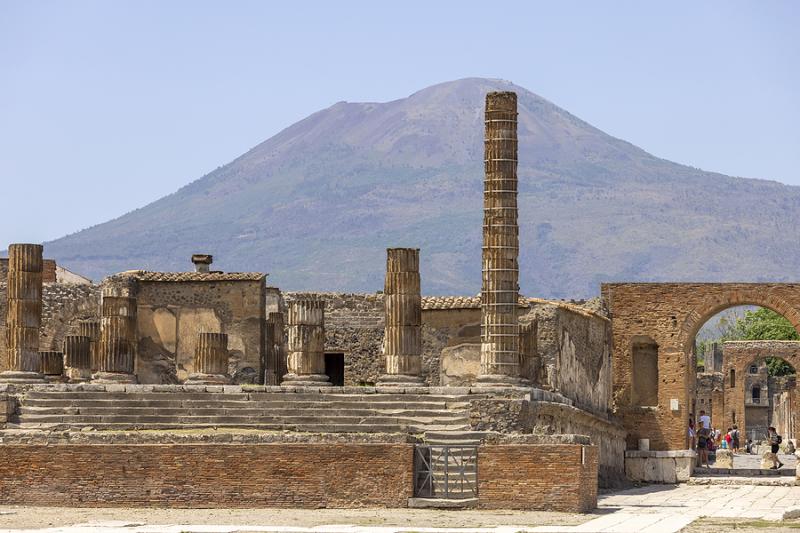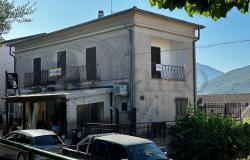Pompeii never stops surprising, as Italy’s Culture Minister Dario Franceschini put it when commenting on the latest extraordinary discovery at Italy’s most famous archeological site: a tomb with a semi-mummified body inside.
The discovery is especially astonishing because the tomb dates from a time when bodies, in Roman Pompeii, were always cremated (except for very small children).
The skeleton lying inside the small burial chamber is one of the best preserved in the city and dates back to the last decades before Pompeii was destroyed by the eruption of Mount Vesuvius (79 AD). It belongs to a man who was about sixty years old when he died. His head is still covered with white hair and one ear has been preserved (for 2,000 years!), as well as part of the fabric that wrapped his body.
The body, which was found in the necropolis at Porta Sarno, one of the main entrance gates in ancient Pompeii, is said to belong to Marcus Venerius Secundio, a public slave, custodian of the Temple of Venus. After he was freed, he became wealthy, to the point that he was able to finance entertainment shows for his fellow citizens and even afford a monumental burial for himself in a prestigious spot in the city.
Up until now, scholars thought that rules about funeral rites in the Roman world were very strict and that everyone had to follow them, or face the wrath of gods. However, if Secundio could choose a burial like this, it means that a certain freedom was allowed. Thus, this discovery could partially revolutionize what has been known about Roman funerary practices and rites.
The tomb contains an inscription in the Greek language that reads: “He provided Greek and Latin ludi for the duration of four days.” 'Ludi graeci' is to be interpreted as ‘performances in Greek,’ and this is the first indisputable evidence that entertainment events in Pompeii were held in the Greek language as well, a sign of a multiethnic Pompeii in the early imperial age.
This unique tomb is the latest in a series of amazing discoveries that took place in Pompeii in recent years. Earlier this year, a 2,000-year-old street food stall adorned with beautiful frescoes was unearthed. It opened to the public on August 12.
Another much-awaited reopening in Pompeii concerns an ancient brothel with erotic and explicit graffiti illustrating the 'sexual services' on offer, one of the most visited spots before it had to close for restoration; and the Villa of the Mysteries, a well-preserved suburban ancient Roman villa.
*As of August 6, 2021, you will need to show the so-called ‘Green Pass’ to access Pompeii and any other cultural site in Italy. Click here for the details.












